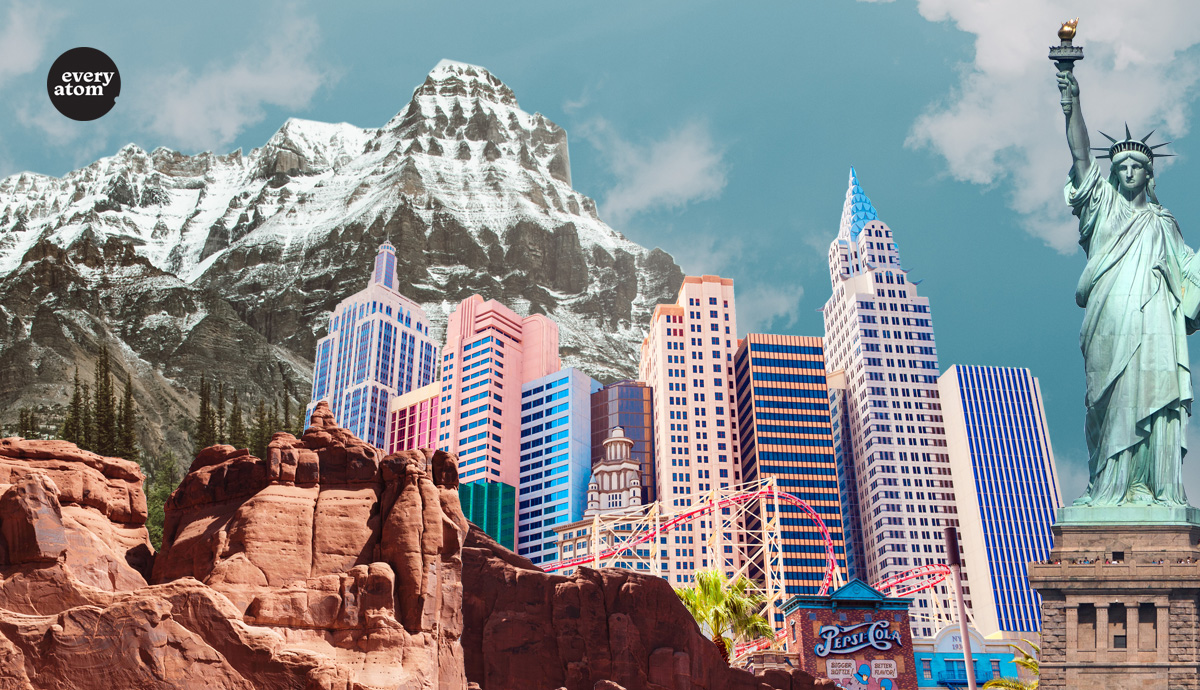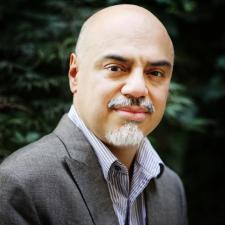Introduction to Every Atom by project curator Brian Clements
One summer not long ago, I dropped my son off at college, driving cross country, from Los Angeles to New York. I set off on this 2,800-mile drive hoping to get closer to my son, and to my country too. We left our California home and passed through the deserts of Nevada and Utah, stopping in Las Vegas, a city that felt at once glitzy and faded. We crossed the Rocky Mountains and the Great Plains, and had lunch at a diner near the Kansas-Colorado border where an army-surplus helicopter was mounted on a pedestal in the parking lot. We ate fried chicken in Kansas, and tacos in Indianapolis. We visited the Rock and Roll Hall of Fame in Cleveland, and Frank Lloyd Wright’s Falling Water in the Pennsylvania hills, where we stayed in a bed and breakfast run by a member of the Daughters of the American Revolution. When Whitman’s New York finally appeared before us at the end of the journey, I had the feeling of having passed through many nations, each with its way of being, its distinctive way of speaking the English language.
Whitman felt the hugeness of the United States too, having crossed back and forth across the country in a time when people travelled by rail and by horse. And he grew up and became a writer near, and inside the many worlds of New York City, with its free blacks and indentured Englishwomen, and Catholics and Jews, and Dutchmen and Frenchmen. Diversity was imbued in Whitman’s sense of self and community. In the Prologue to the 1855 edition of Leaves of Grass, he wrote: “The American poets are to enclose old and new for America is the race of races.”
From an early age I understood, as Whitman did, that to be American is to grow up with an openness of national identity. That openness has been challenged throughout the nation’s history by racists, anti-Semites, and xenophobes of various stripe (never more so than today). But the American who wants to embrace his neighbors with a Whitmanesque warmth is by no means an endangered species. I, the son of Guatemalan immigrants and a native Angeleno, can feel like an unkempt outsider in the presence of the New Yorker, or when I wander into a fried chicken joint in Kansas. At yet, time and again, I have seen an American stranger greet me and welcome me into her community or his home. In Idaho and Georgia, in Oregon and Alabama. In these encounters, each of us can feel like a “friendly and flowing savage” to the other, and yet in the time we spend together, we accept and speak to one another. And we help create and renew the free country Whitman saw and chronicled in Leaves of Grass.




